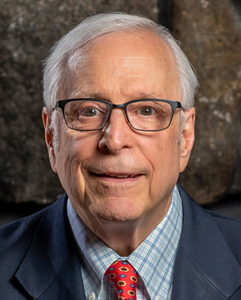The value of scarcity has been praised by poets, philosophers, and storytellers for thousands of years. They correctly point out that sometimes having nothing at all is preferable. Yet, it seems to me that few people think about the risks, challenges, and setbacks—all of which are equally important. We need to understand which leadership qualities make up a great executive leader. After all, organizations only thrive when leaders hone their skills and put the needs of their employees first.
Top Leadership Qualities Needed for Executive Leadership
Wanting to be a leader often leads you to ask what it means to be a great leader in the first place. What characteristics make for great leadership? To understand the answer, there are 10 key executive leadership qualities you should consider:
1. Having the Desire to Be a Leader
Related to ambition, at least in part, is the desire to lead without the negative connotation and crude expectations of needing to elbow one’s way to the top. The most effective executive leaders seem to have an innate urge to step into the void left by others, fill in the gaps, and put things in order. I realize that events, circumstances, and even luck can elevate a person’s leadership. Nevertheless, these traits are usually found in those who are most successful.
2. Having Conscientiousness
Great executive leaders have a consistency of character, even though this quality may not be evident in every leader you read about or meet. They are compelled to act morally by nature. While there are many options in the decision-making process—some traditional, some tempting, and some dangerous—great executive leaders can often use a conscientious, fair, and impartial compass to determine the right direction and quickly chart the way.

3. Being Naturally Curious
Having options (or, in other words, expanding one’s horizons) can be a positive and effective alternative. After all, an inquisitive mind broadens one’s perspective and raises their consciousness. Moreover, insight stems from curiosity; wisdom maximizes one’s leverage in a cutthroat market.
4. Staying Focused
It’s important to understand the importance of focus when trying to lead a program to success. Whatever the task is, the most effective executive leaders minimize interruptions. The majority of what they accomplish is done with purpose, intent, and laser-beam focus.
5. Being a Catalyst
Most of us are familiar with what it feels like to be inspired to take action and then commit, do something, or even pursue a cause. Good executives recognize the need to act as a catalyst for change. Senior leadership is well aware that in the midst of all the rapid change and disruption in a digital and dynamic business environment, lethargy and apathy can kill a company. Consequently, they frequently encourage, persuade, and prod people to act.
6. Knowing How to Care
The best leaders truly care about the people they are responsible for. They don’t come at the expense of improved performance or higher standards. Rather, they exist in tandem with these activities. Better yet, compassionate and sincere leaders actually have hearts. They naturally end up being perceptive and hyper-aware of other people’s needs.
7. Being a Coach and Advocate
Great executive leaders bring out the best in others. Aside from being catalysts of change, they can serve as terrific mentors and coaches. Ask yourself, “How many successful people do I know who regularly acknowledge that mentors, coaches, or even managers have been instrumental in their growth and success?” Even at the C-suite, senior leaders help guide the development of those around them. They ensure that a capable cadre of successors is in the ranks and prepared to step up to bigger challenges.

8. Maintaining Your Followers
Even if they do it subtly, the last thing people want in a leader is someone who exudes concern, anxiety, dread, or doubt. Steady and consistent leaders attract people, just like those qualities that inspire followers. They assist others in staying focused and productive during times of adversity (think, “Keep calm and carry on”). Even in good times, they maintain a cyclical and fluid view of things. Even at the best of times, they promote modesty.
9. Having Stability
Even if they do it subtly, the last thing I want in a leader is someone who exudes concern, anxiety, dread, or doubt. Steady and consistent leaders attract people, just like those qualities that inspire followers. They assist others in staying focused and productive during times of adversity (think, “Keep calm and carry on”). Even in good times, they maintain a cyclical and fluid view of things. Even at the best of times, they promote modesty.
10. Knowing How to Instill Hope
Merely having hope is not the best strategy for closing a large or complex deal. Yet, optimism is a superb quality for a leader to have. When their leader can present a vision of hope—one that’s clear about what everyone needs to do and get better at with hard work and perseverance, even in the most trying times—people are more likely to get up, get out, and get to work.
Leadership Qualities: A Recipe for Executive Success
You might have noted that my list of the top 10 senior leadership attributes omitted skills like financial expertise, strategic thinking, and execution-driving. This is because these are simply competencies.
Executive leadership competencies, in my opinion, are actually the cornerstone of effective executive leadership, even though they are crucial and significant. You really do have a prescription for senior leadership success when you combine several of the traits I’ve outlined with excellent strategic thinking, planning, and execution abilities—leadership skills that can be cultivated.
Which of these leadership qualities will be part of YOUR leadership testimonial?
Still want to be an executive leader? Don’t wait! Find out more about how to handle the difficulties of becoming a successful executive leader. Just schedule a call or visit my website to get started.


